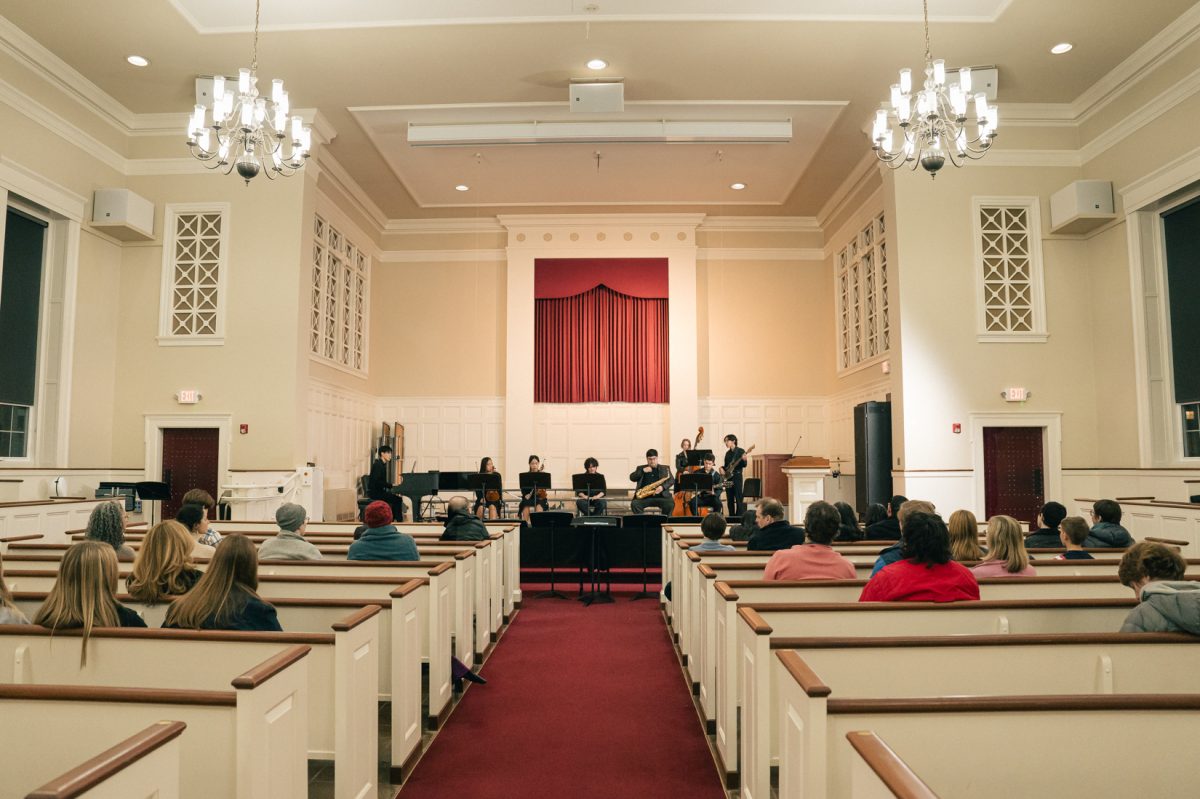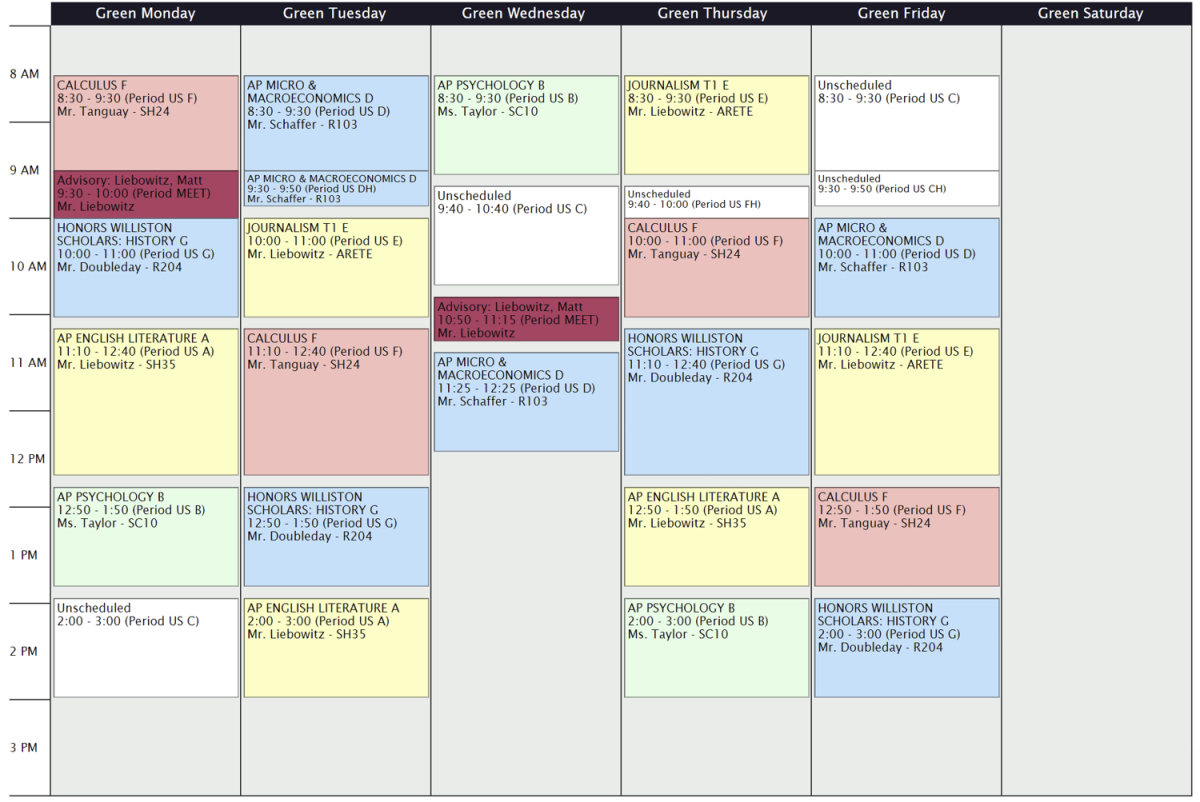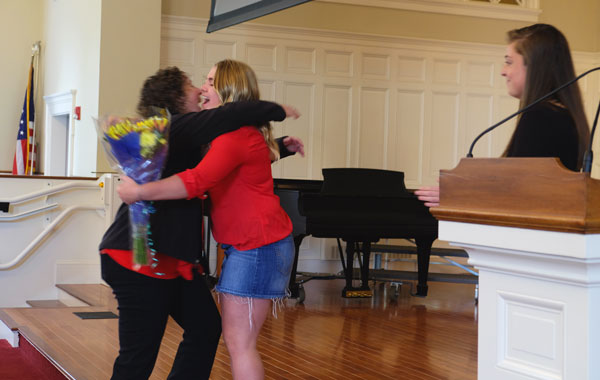by Ben Thompson, LICSW, BCD, Director of Counseling Services
 Seniors, does this sound familiar? Ever since you completed your college applications and your mid-year grades were submitted, it feels like the pressure finally has been relieved. At the same time, you’ve been less motivated than usual and aren’t putting as much effort into your school work. Units are starting to accumulate, your academic performance is dropping, and you’re feeling somewhat depressed and bored. You may also find that you’re more irritable in general and less tolerant of even your closest friends. In fact, almost everything about Williston is bugging you lately.
Seniors, does this sound familiar? Ever since you completed your college applications and your mid-year grades were submitted, it feels like the pressure finally has been relieved. At the same time, you’ve been less motivated than usual and aren’t putting as much effort into your school work. Units are starting to accumulate, your academic performance is dropping, and you’re feeling somewhat depressed and bored. You may also find that you’re more irritable in general and less tolerant of even your closest friends. In fact, almost everything about Williston is bugging you lately.
Welcome to the world of “senioritis,” or, as some people call it, the “senior slump.”
According to Urban Dictionary, the senior slump is that period when second semester seniors “stop doing their homework, give up on extra-curricular activities that actually require work, develop mysterious illnesses, and sleep until noon on a Tuesday.” This behavior occurs in a sort of “lame duck” context. Plans are being made for a new chapter in life that is about to begin, but the current chapter hasn’t ended yet. The whole process can feel like a formality—a period to be endured rather than embraced.
Many seniors ignore that friendly warning in their college acceptance letter stating that their admission “is contingent upon successful completion of 12th grade.” This is NOT a good idea. According to the College Board, “every year, colleges rescind offers of admission, put students on academic probation, or alter financial aid packages as a result of ‘senioritis.’” To college officials, senior year slacking may be a sign of academic struggles to come. Studies have shown that students who stop trying during their senior year often continue the trend once they start college. Professor Michael Kirst, Ph.D., author of the report, “Overcoming the High School Senior Slump,” reports that some colleges place up to 70% of incoming freshmen in remedial courses. He has found that students who decide to take a break from learning during the last semester of high school are losing an opportunity to build and strengthen skills that college-level courses require.
So what can you do to keep senioritis at bay? First of all, remember that the way you conduct yourself during the second half of senior year will have an effect on your adjustment, both personally and academically, to college life. Be vigilant about the choices you are making and the consequences of those decisions. In addition:
– Stay active and set some goals for the period leading up to graduation.
– Get involved in projects that offer an opportunity to discover your personal passions. This may be a good time to do some volunteer work or give back to the school in some way.
– If possible, take courses that inspire you and relate to what you want to learn in the future.
– Sit in front during class. It helps you to focus and stay alert and involved.
– Talk about your feelings with friends or trusted adults. (For example, you may be feeling scared about leaving the familiarity of Williston and entering a whole new world).
– Responsibly savor the senior experience (prom, senior dinner, Willy Gras, Senior Day, the last few months with your friends, etc.).
– Play Ultimate Frisbee (a shameless plug for the Ultimate Club, I know). Actually, exercise of any kind is a great antidote to apathy.
Author Isabel Waxman writes: “It is indeed ironic that we spend our school days yearning to graduate and our remaining days waxing nostalgic about our school days.” I encourage any student in the throes of senioritis to try to take these words to heart, for “these are the good old days.” They’re important. Don’t waste them.









